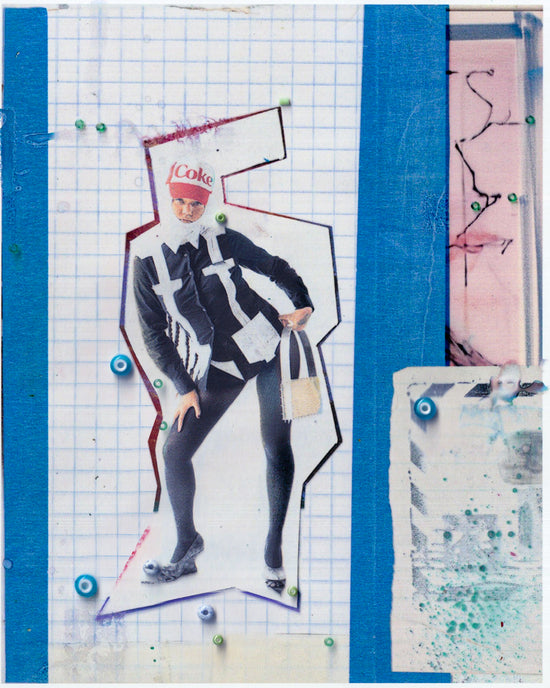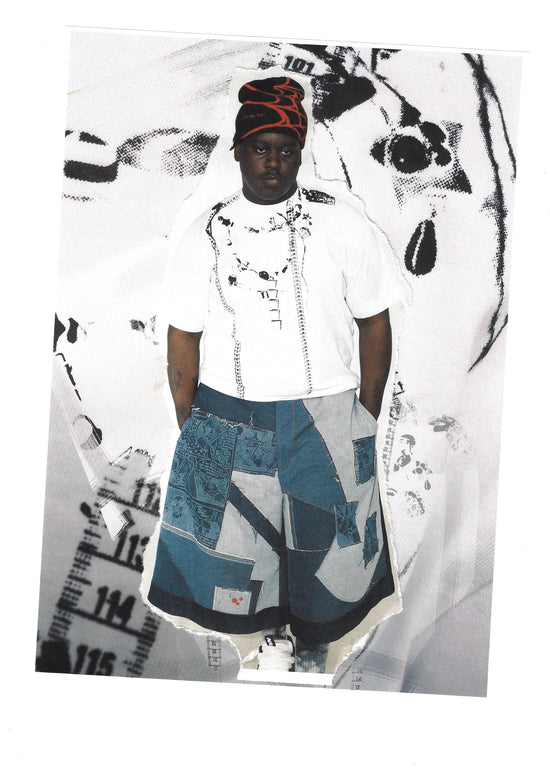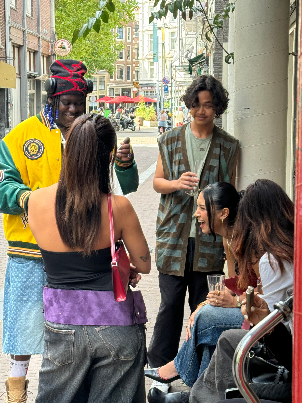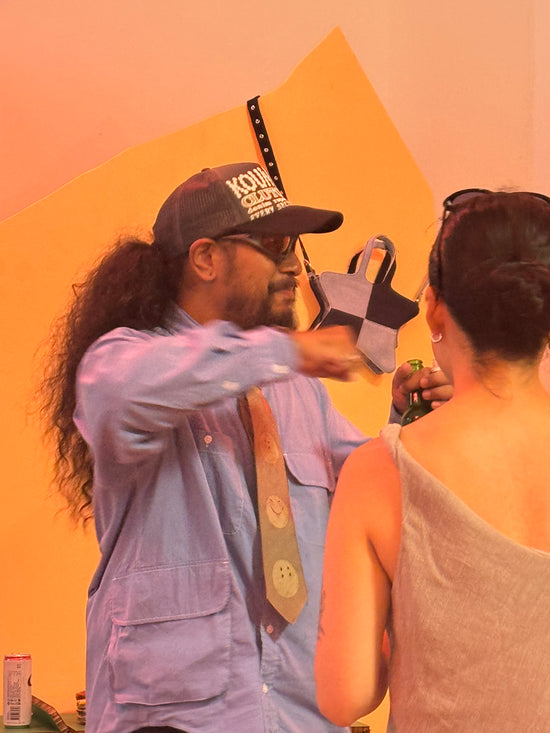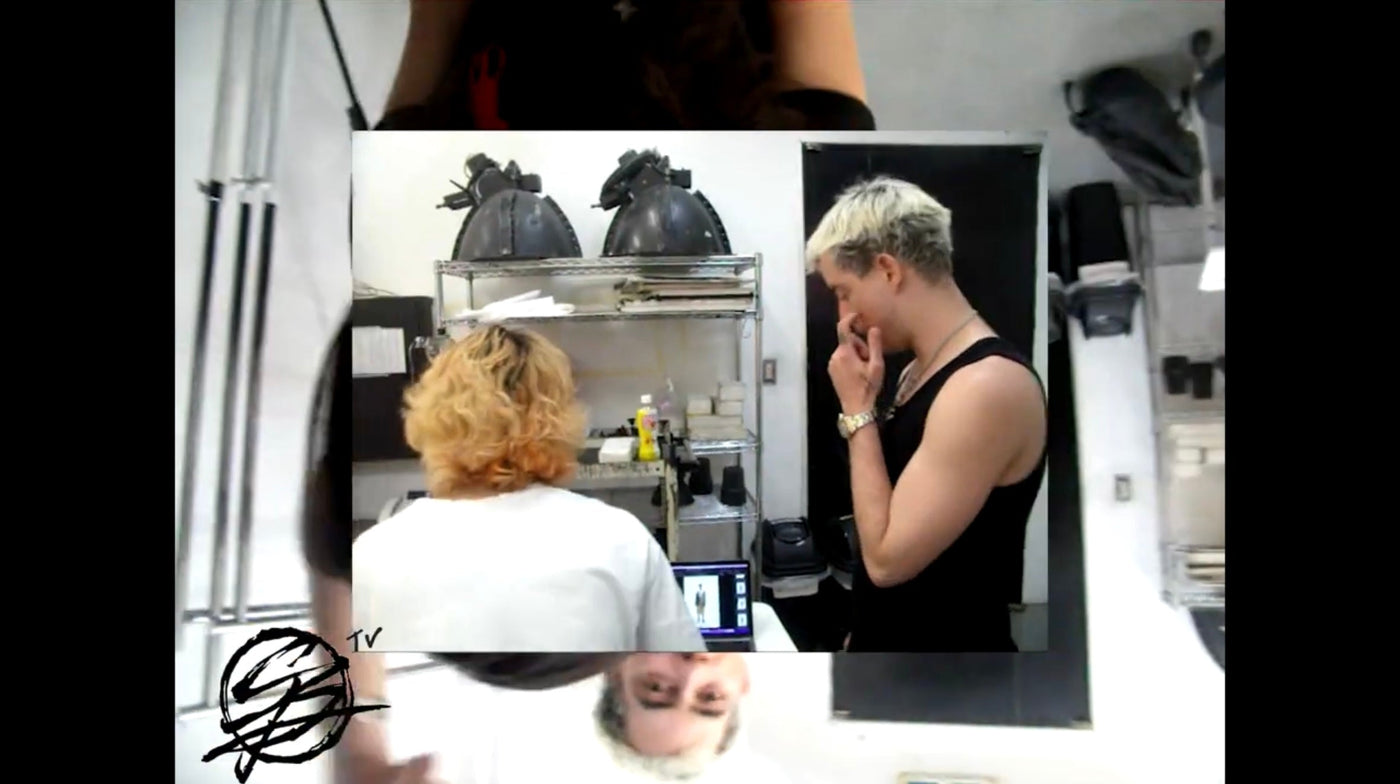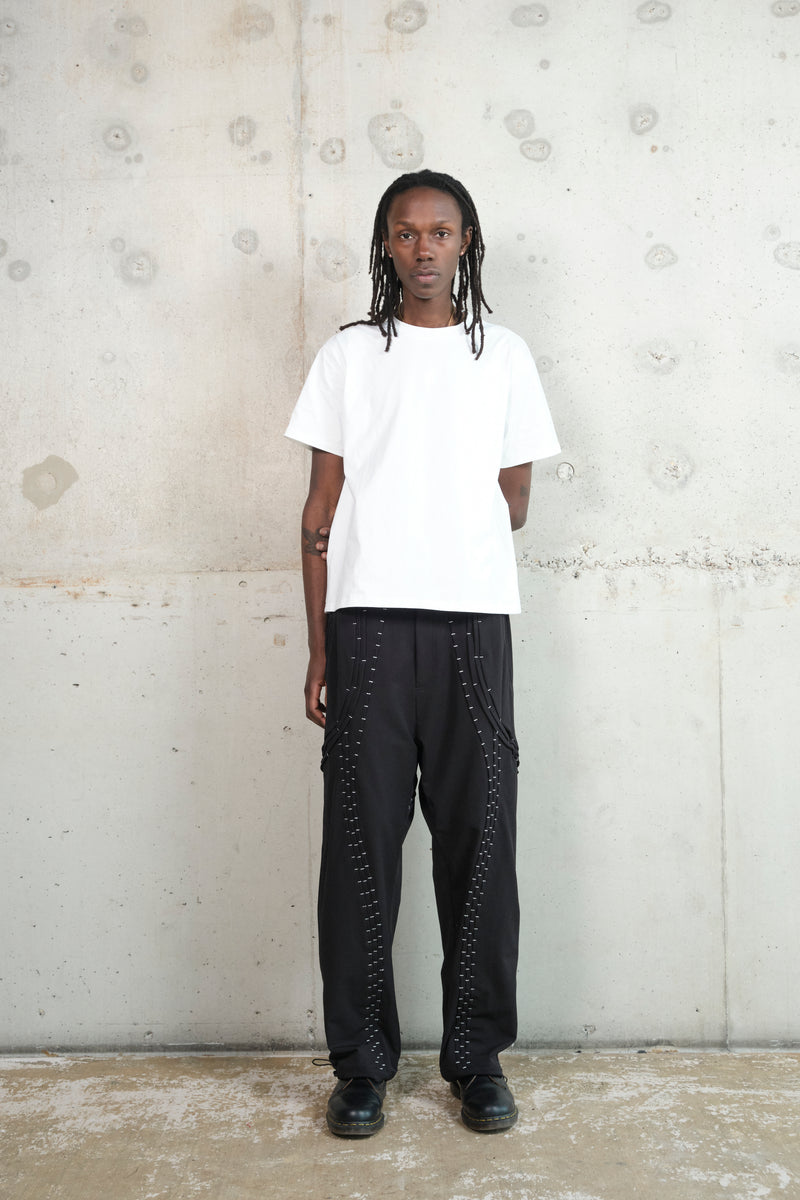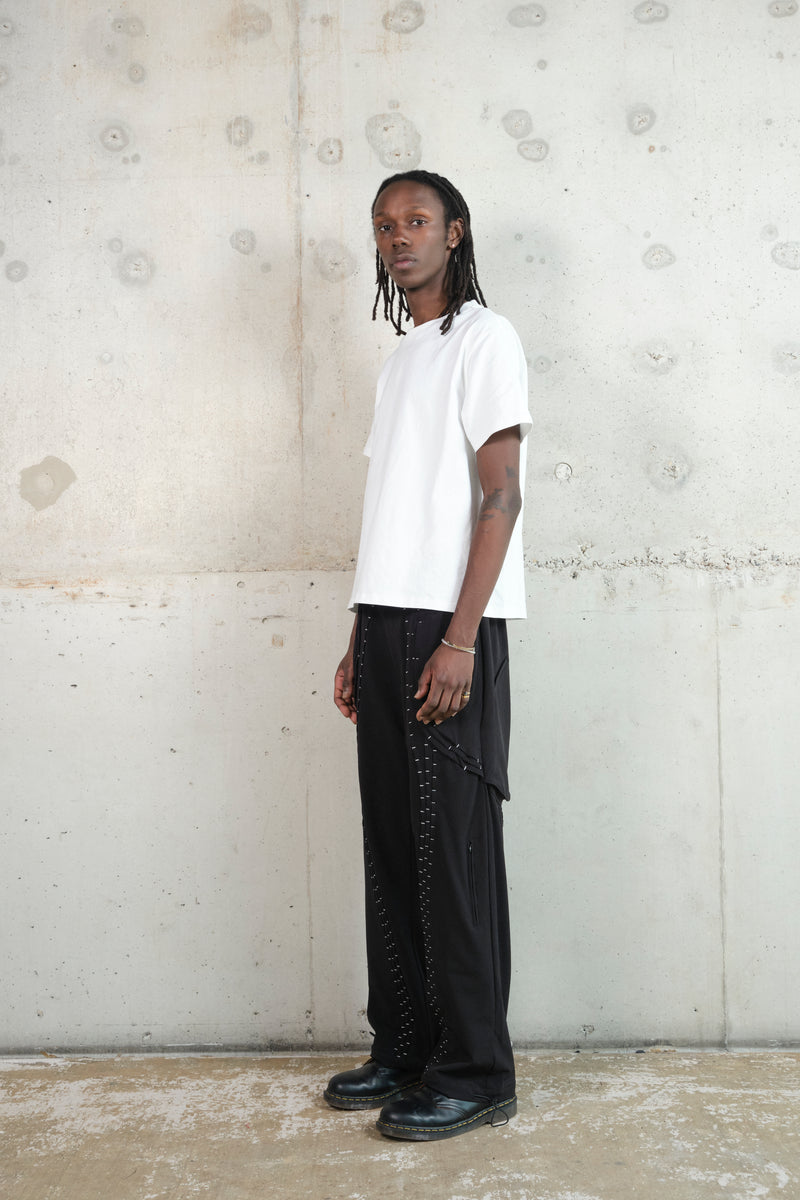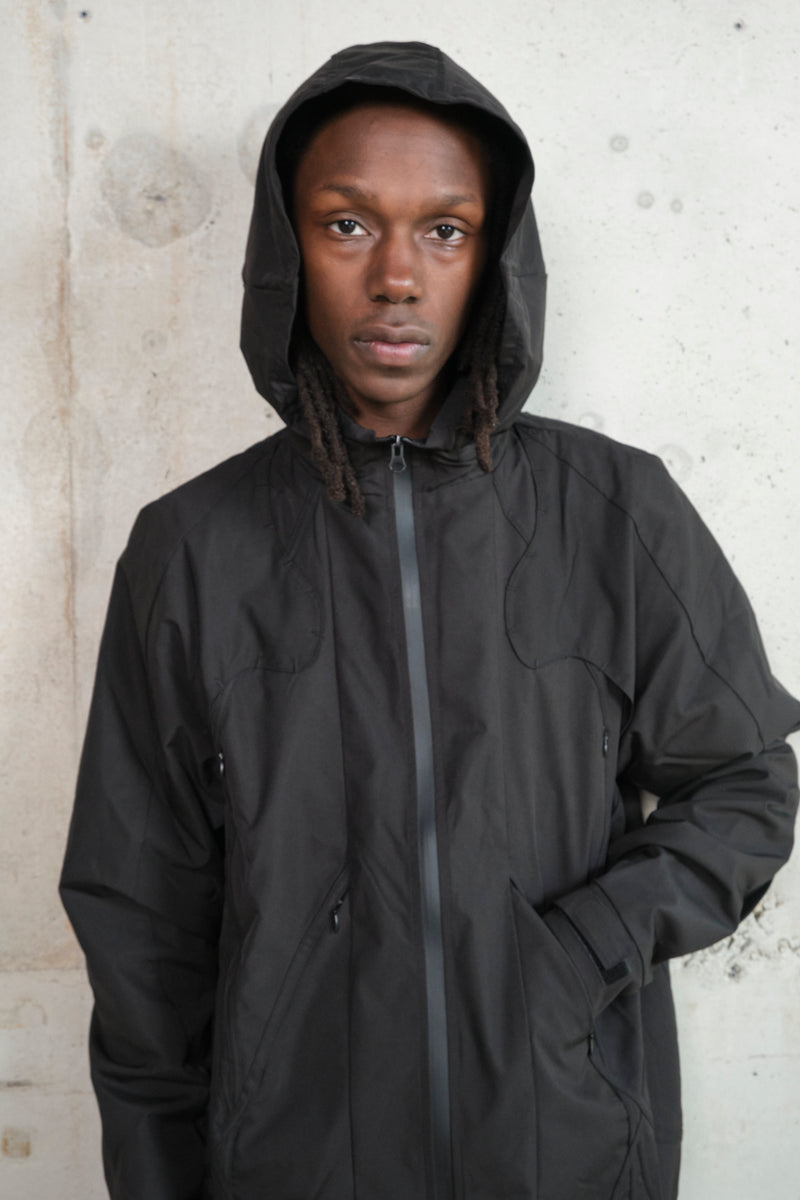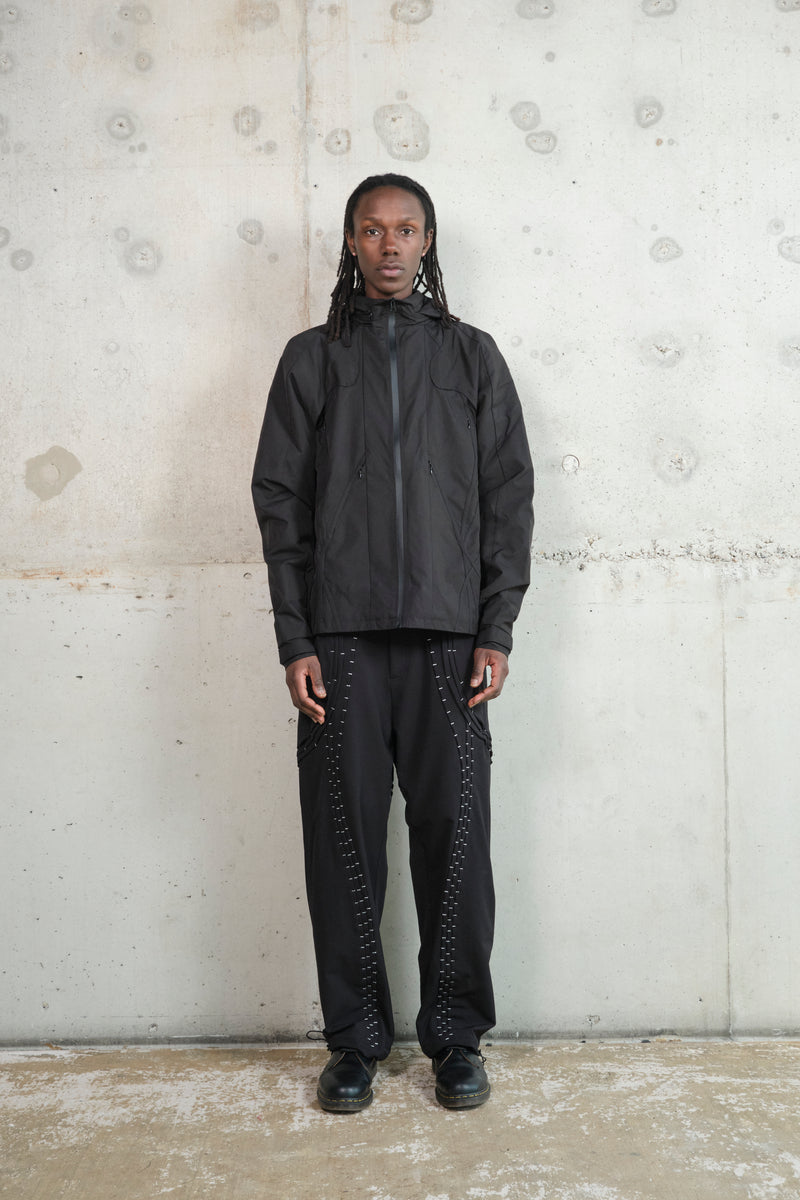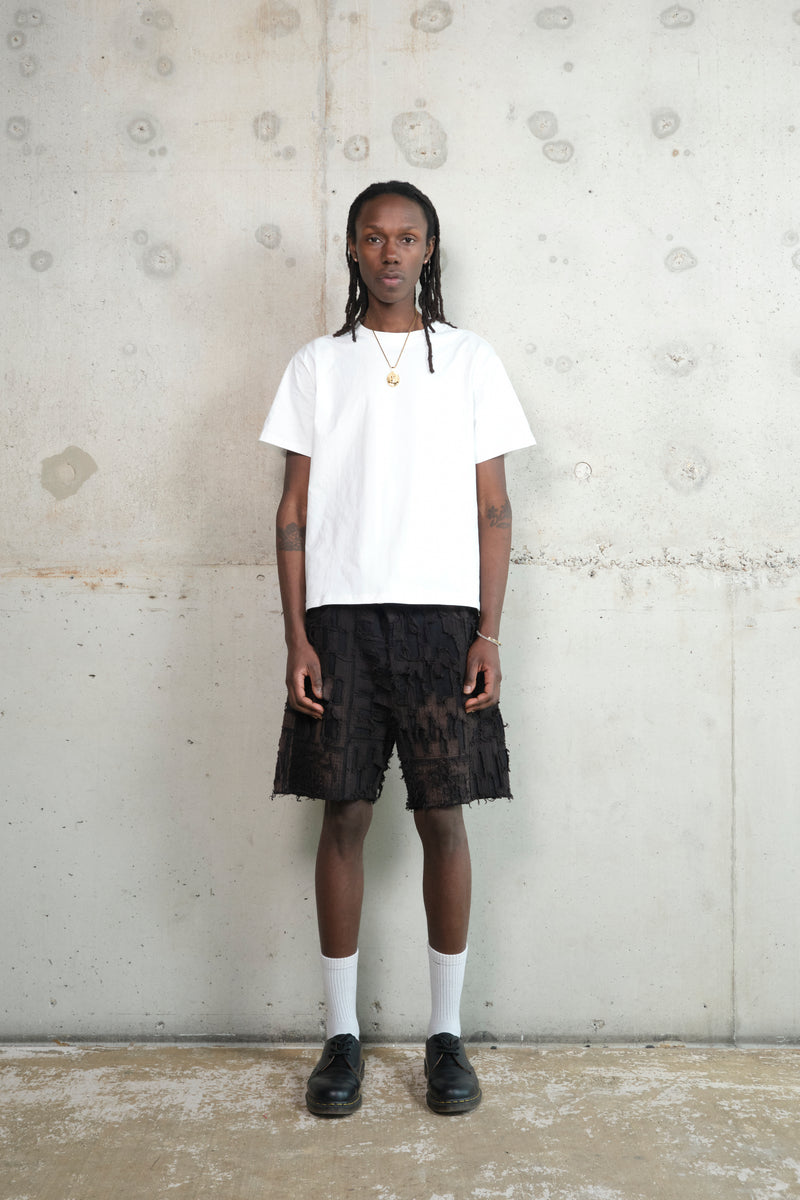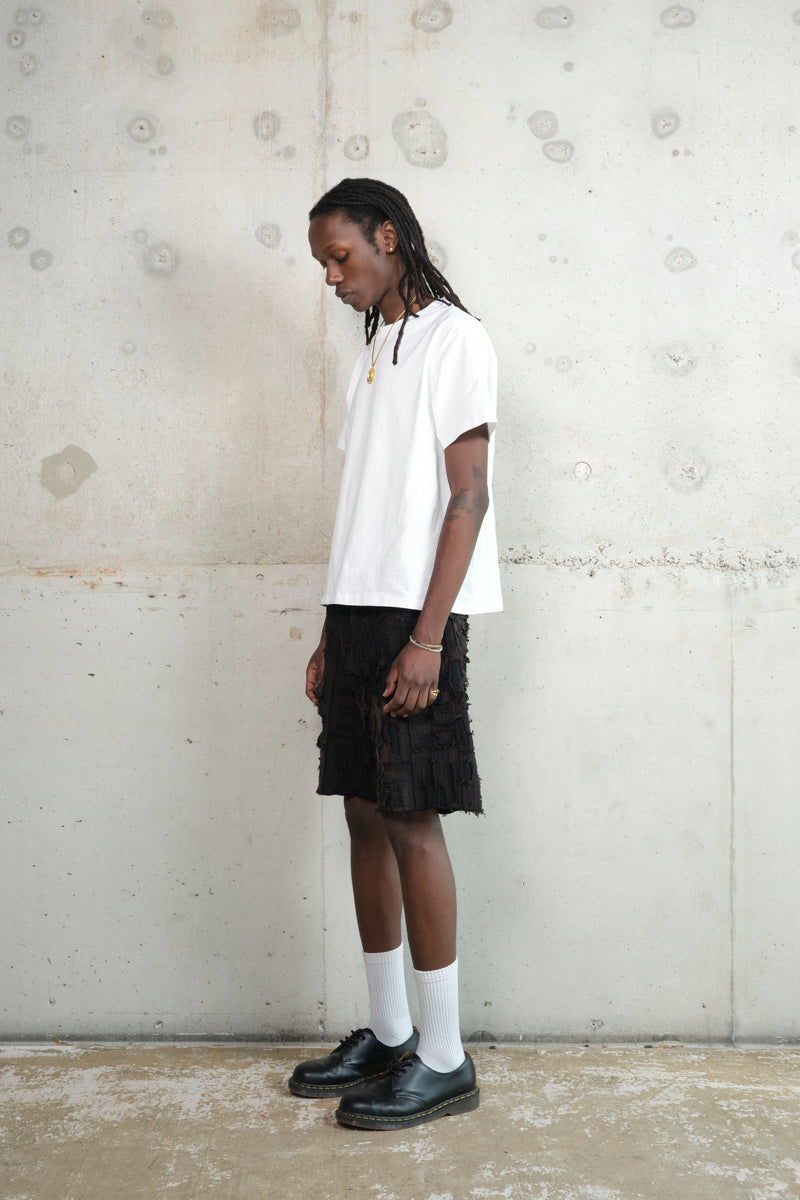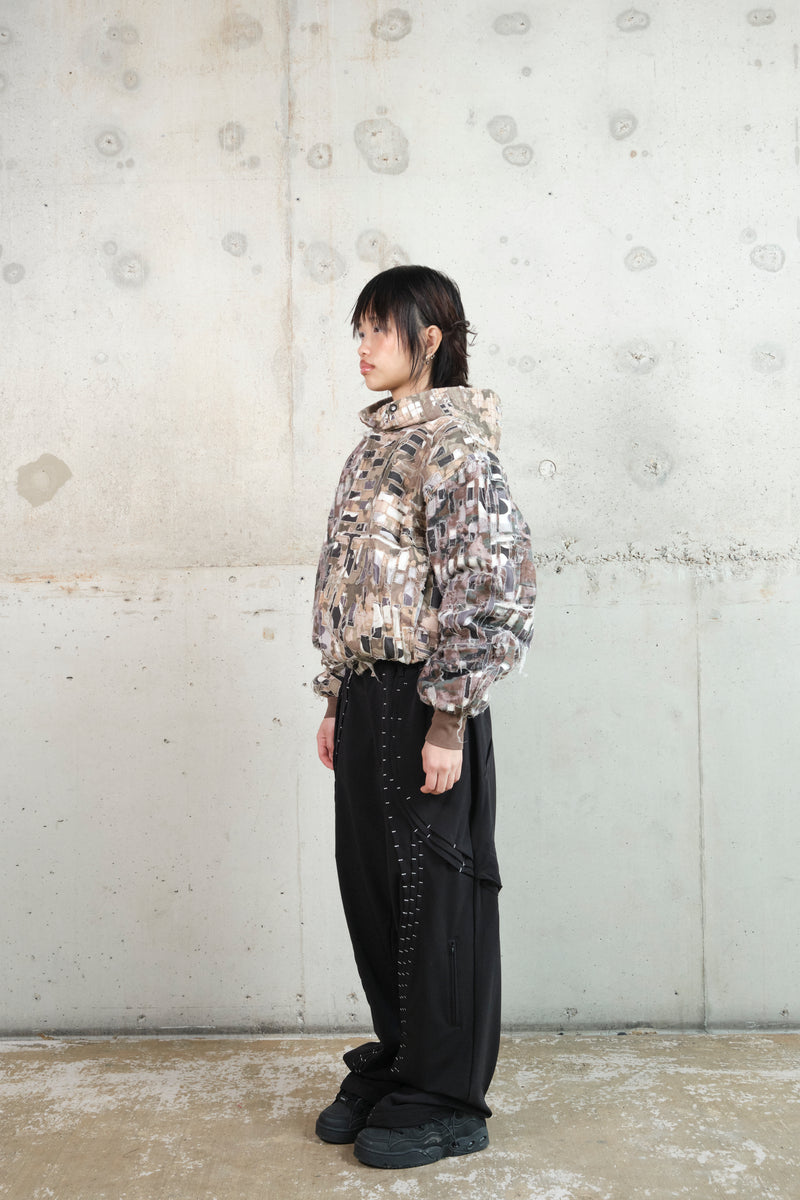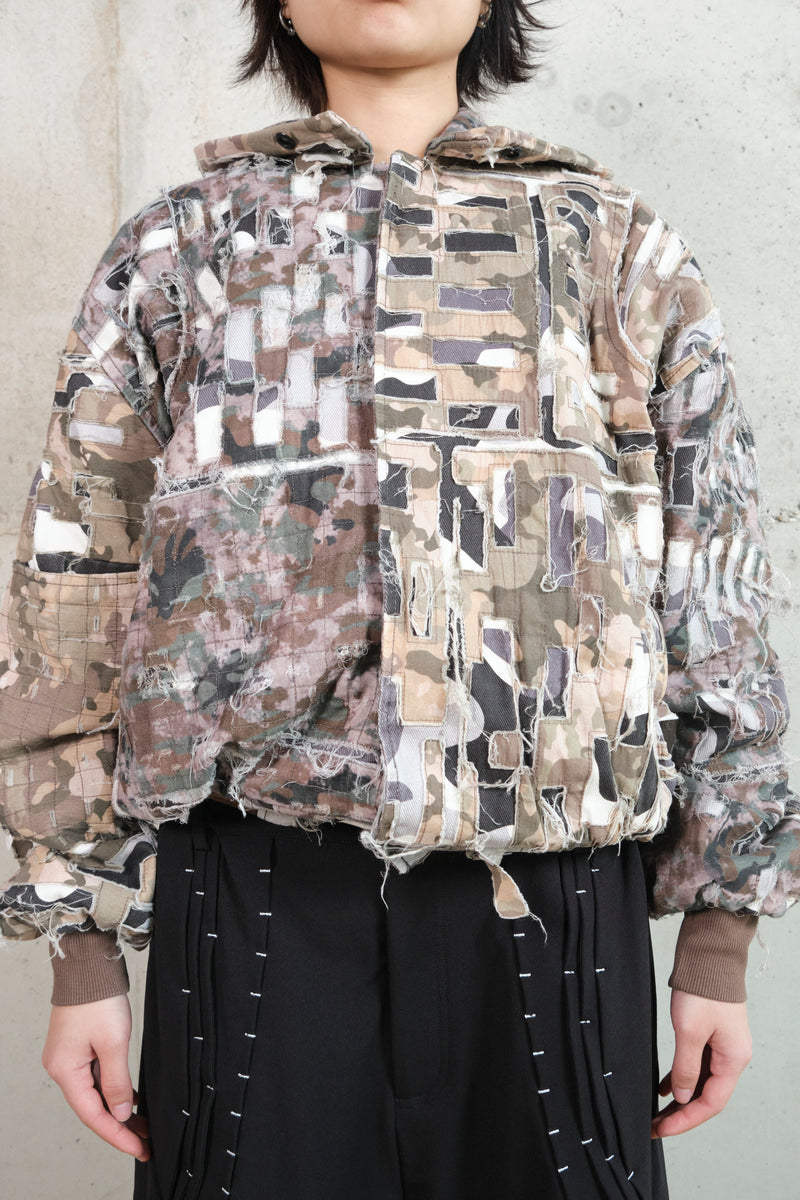BARCELOS WAS ONE THE VERY FIRST LABELS WE BROUGHT INTO THE DREAM UNIT STORE-AND IS STILL ONE OF OUR FAVOURITES. TEUN HAS TO STOP HIMSELF FROM WEARING IT EVERY DAY BECAUSE HE IS AFRAID TO WEAR THEM OUT.
WE SAT DOWN WITH NEALE, FOUND AND CREATIVE FORCE BEHIND BARCELOS, TO TALK ABOUT MENTORSHIP, LIVING IN TOKYO AND HOW TO GET RID OF DESIGN-BLOCK (SPOILER ALERT!) DRINK 7 HIGH-BALLS AND IT WILL JUST FADE AWAY.
- Evy: Let me start with a little intro about how we met two years ago—at this club called Shinyuku on your first night in Tokyo. It was such a random and iconic moment. You heared Teun talking to a random person at the toilets and you heard him talking about Amsterdam and then he introduced you to me and we hang out the whole night. I wanted to leave at some point, but Teun was so drunk he was literally jumping around. My question is: how did your life change after that night? Not so much in terms of meeting us, but more about living in Japan.
- Neale: Honestly, my life changed a lot. When I first came to Japan, I had a clear plan. I was working for a company, and they had sorted out my visa. But when I arrived, although my visa was in place, I didn’t have a place to live. So that same night, I ended up at the club and met you guys—which was totally random. Looking back, it feels like meeting you set off a chain reaction that led me to where I am now: quitting my job.
I left that job and now run my brand full-time. I also freelance for other brands. Meeting you guys gave me the confidence to quit—which was huge for me, because I’ve always valued financial security. My spending habits are kind of… intense. So having a stable income felt necessary.
But meeting you and everything that followed really felt meant to be—even though it was a bit crazy. I mean, who meets their future stockists on their first night in Tokyo just because we happened to speak Dutch? It’s wild.
You were also the first ones to believe in my brand. I trusted you, sent you my first release, and you actually sold pieces—like four items a month. At the time, that blew my mind. Then I got invited to do a pop-up in Korea, super last-minute, through a friend. People showed up, bought my stuff, and I ended up with my first official stockist.
They started selling eight jackets a week, and eventually sold out my whole release even before I officially launched it. I had ten jackets left to sell online, and you guys bought one for yourselves and were impressed with the quality. Now, you’re my third stockist. It’s been a wild ride.
- Evy: That’s so exciting. I’ve heard parts of this before, but every time it gets me emotional. It’s amazing to see how something small can lead to such a big shift.
- Neale: Yeah, it blows my mind too. And I really appreciate you guys, even though I’m not always great at communicating. I do my best. I’m often in my own head, in my own world.
- Evy: Can you tell us a bit about Barcelos? The business model, the team? In the beginning, you asked us to write done the instagram of the customers who bought Barcelos so you could stay in contact with them—I loved that.
- Neale: When I first started Barcelos, it was meant to be a sportswear brand. But living in Japan changed that. I got into hiking as a way to escape the fast-paced, city-centered life here. Tokyo can be intense. That experience made me want to create something that blends city survival and outdoor functionality.
Now, Barcelos is designed to survive the city but built for the outdoors. That’s the concept. I don’t follow trends—I just make what resonates with me and hope others connect to it. It’s not the most strategic business approach, but it’s authentic.
I’ve seen creative friends lose their identity in the process of scaling their brands. I don’t want that. Barcelos is deeply personal. I never finished school, don’t have a degree—this brand is the only thing I’ve ever gone all in on. If I lose the connection to it, it would feel like a waste.
I make what I need in my own closet. I haven’t shopped in two years. If I want something, I design it. That’s the rule. No buying, only creating. It keeps my vision clear.
- Evy: I love that. So two years ago you made that rule?
- Neale: Yeah, when I moved to Japan. Before that, I did shop. But buying things started influencing my creative choices, so I stopped. If I want to be original, I need to create, not consume.
People ask to intern with me, saying it would be life-changing. But I always think: you could get more out of investing that time in yourself. That’s what I did.
- Evy: I really respect how you live your values. It shows in everything.
- Neale: Thanks. That’s the goal—the brand should reflect who I am. The ultimate dream isn’t even about money. It’s about giving back. I don’t know how yet—maybe free clothes, maybe something else. But I’m working on it.
The first step is trying something this year. If it works, I’ll keep going, even if it’s not profitable. But I do have to balance idealism with the reality of running a business.
- Evy: Earlier you said you were facing your first design block, what helps you stay creative when you hit a block?
- Neale: I wouldn’t say it’s the first time I’ve ever had one, but it’s definitely the longest I’ve experienced. Lately, I’ve just had a lot of intense deadlines, and I think I’m honestly just stressed.
Usually, when I want to break out of a creative block—this might sound very Japanese—but I go to an izakaya. Seriously, if you don’t know what that is, look it up. It’s my best advice. Go to an izakaya, order like six highballs, eat some karaage, and just relax. The block usually fades… eventually
But to be honest, on a more realistic level—I don’t think there’s a guaranteed way to get rid of a design block. It just comes and goes. Even when I try the classic stuff like going to a museum for inspiration, sometimes it doesn’t help. Because the block isn’t really about the design itself—it’s usually about something else going on in your life that’s pulling your attention away.
Once you figure out what that thing is and deal with it, the creativity usually comes back. But yeah, there’s no magic trick. You just have to ride it out sometimes.
- Evy: What about mentorship? Do you have one? Want one?
- Neale: No—and I’ll explain why.
I think mentorship can be great, but it really depends on who you are as a person. I’ve always been someone who’s naturally curious. Ever since I was young, I’ve had this designer mindset: if I can’t get something from someone else, I’ll figure it out myself.
That mentality made me feel like I never needed a mentor to guide me. Especially now, when everything is online. You’ve got YouTube, forums, tutorials—whatever you want to learn, the resources are there. It just takes time and effort. If you really dedicate yourself to learning something, you’re going to improve. No question.
To me, it’s like playing a video game—the more time you spend, the better you get. That’s how I approach all my interests. That’s why I never really felt the need to have someone telling me what to do or how to do it.
And honestly, I’ve never believed in shortcuts. Some people think having a mentor means someone will just tell you all the answers one day, and everything will fall into place. But it doesn’t work like that.
In fact, I sometimes compare mentorship to school. You show up expecting someone to teach you to sew a straight line, and instead, they hand you a piece of paper, ask you to fold it, and tell you to figure it out yourself. You’re essentially teaching yourself. That’s what mentorship often is.
That said, I do think mentorship can be powerful—for inspiration more than skill-building. Some people really benefit from looking up to someone and thinking, “If they did it, why can’t I?” That kind of motivation is valuable. And you don’t need to know someone personally to get it. You can find it in a video of Virgil, or Yoji, or whoever inspires you.
Of course, having a personal connection to a mentor might have a stronger impact. But for me, I just never felt that need. I think mentorship is great for those who thrive with it—but it’s not something I rely on.
- Evy: How would a Barcelos hotel look like?
- Neale: Definitely concrete and industrial. Minimalistic. I love that aesthetic.
- Evy: And if Barcelos were a movie?
- Neale: I think it would be a trilogy.
A thriller—definitely a thriller. The kind where you’re constantly trying to guess what’s going to happen next.
That’s the kind of movie I’d make if Barcelos were a film. Something unpredictable, with layers. Keeps you on your toes.
- Evy: And who’s always right?
- Neale: That’s a tough one. Who’s always right? Honestly, I don’t think anyone is. That would be my answer—nobody can always be right.
If I had to answer from a spiritual or religious angle, I’d say I don’t really believe in a specific god or figure. But I do believe there’s something out there—some kind of presence—that sees the bigger picture and might have the answers. Still, when it comes to who is always right? I genuinely don’t know.
I do believe that we can always correct our actions. Maybe you weren’t right in the moment, but once you become aware of your mistake, you have the chance to fix it. That’s what matters more to me—being able to learn and grow.
Being right all the time would actually be kind of boring. The interesting part of life is messing up, figuring it out, and learning from it. That’s where the growth is.
- Evy: Last one: what’s the ultimate dream for Barcelos?
- Neale: The giving back? Yeah, that’s definitely the dream. But it’s layered—it’s not just one dream, it’s more like a dream within a dream.
The original dream, the one that really started it all, has two parts. First, it’s about giving back to the people who helped me get to where I am. And second, it’s about building something with my friends. I don’t want to hire outside professionals—I figured things out on my own, and I believe my friends can too.
The real vision is to grow Barcelos into a platform that lifts them up. If one of them is making music, I want the brand to be big enough to give them visibility in the music world. Or in sports, or whatever they’re passionate about. Fashion today overlaps with everything—music, sports, art—so why not use it as a bridge?
Ultimately, I don’t want Barcelos to be just about me. I want it to be something my friends can grow with, build from, and be proud of too.

